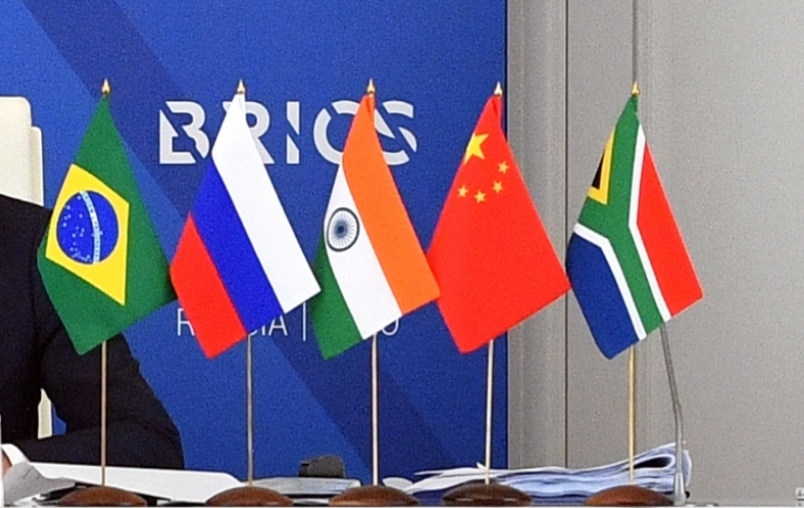China stresses BRICS solidarity in time of turbulence, transformation
‘Seeking one’s own security at expense of others only creates tensions’

The BRICS countries-Brazil, Russia, India, China, and South Africa-account for 24 percent of global GDP and 16 percent of world trade, apart from40 percent of the World’s population. Thus they form the largest formidable block as such.
The current BRICS meeting was the first time for the BRICS foreign ministers to meet since Moscow launched a military operation against Kiev in February.
The interaction among the ministers of India, Russia and China, are being closely watched. Russia is willing to further strengthen the relationship with BRICS members so that it would not be particularly isolated from the rivalry between Moscow and the West.
Built on the consensus reached on Thursday, the following summit is likely to chart the course for the settlement of Ukraine issues from the perspective of strategic guidance.
The BRICS foreign ministers’ meeting actually served as a warm-up to the BRICS summit coming up shortly. This warm up session was thus the most important activity as it has laid a foundation to uphold true multilateralism and solidarity for the summit, analysts said.
China stressed the strengthening of solidarity and cooperation among BRICS nations and injecting stability and positive energy into international relations in a period of turbulence and transformation at Thursday’s BRICS foreign ministers’ meeting.
Chinese President Xi Jinping said at a video address at the opening session of the BRICS Foreign Ministers’ Meeting that BRICS countries need to firm up belief, brave the storms and waves, and take real action to promote peace and development, uphold fairness and justice, and advocate for democracy and freedom to inject stability and positive energy into international relations in a period of turbulence and transformation.
Seeking one’s own security at the expense of others will only create new tensions and risks Therefore BRICS countries need to strengthen political mutual trust and security cooperation, maintain close communication and coordination on major international and regional issues, oppose hegemony and power politics, reject Cold War mentality and bloc confrontation, and work together to build a global community of security for all.
Chinese State Councilor and Foreign Minister Wang Yi chaired the meeting of the BRICS Ministers of Foreign Affairs on Thursday via video link. Indian External Affairs Minister Subrahmanyam Jaishankar, South African Minister of International Relations and Cooperation Naledi Pandor, Brazilian Foreign Minister Carlos Franca, Russian Foreign Minister Sergey Lavrov, and attended the meeting.
Wang Yi said at the meeting that China’s dynamic zero-COVID strategy is aimed at curbing the virus transmission at the fastest speed with the lowest cost, and to protect people’s health and life at the largest scale while reducing the impact on the economy to the lowest level. He noted the strategy shows a sense of responsibility not only to the Chinese people but also to the world.
Wang also said some countries build “small yards” with high walls and create a parallel system, and adopt an irresponsible macroeconomic monetary policy, which worsens instability and creates an imbalance in economic resumption, seriously squeezing the space and resources for emerging markets and developing countries. Wang called on BRICS members to resist such a move that would split the world.
As the Russia-Ukraine crisis goes on, China has been helping to promote peaceful talks. Delivering weapons cannot bring about peace and sanctions cannot solve the security dilemma of Europe, Wang said. The international community should work together toward peace and ease the conflict with actions rather than add oil to it, Wang said.
Wang said that China supports Russia and Ukraine continuing peace talks and called on NATO and the European Union to hold comprehensive talks with Russia.
The Russia-Ukraine conflict was a big test for the solidarity and cooperation of BRICS members, which they withstood the test. The BRICS’ voice on the Ukraine crisis not just represented the five countries, as many countries in the world share a similar position. The BRICS mechanism offers a platform to call for peace amid the US’ efforts to escalate the situation with unilateral sanctions and weapons aid.
The BRICS cooperation makes the reasonable security concerns of Russia get basic recognition so that Russia will not be forced to a complete diplomatic isolation and be provoked into taking irrational measures. BRICS nations also practice true multilateralism, maintaining international peace and security to reduce the mistrust and insecurity to provide the necessary conditions for Russia and Ukraine to sit down and resolve issues peacefully.
Days after the BRICS foreign ministers’ meeting, India is going to attend the US-led Quad meeting, and Chinese analysts believe India is trying to pursue a balanced diplomacy between major powers and increase its bargaining chip.
BRICS cooperation means more than just the five countries. As the leaders of emerging markets and developing countries, BRICS cooperation has increasingly displayed its global significance with the “BRICS+”dialogue.




